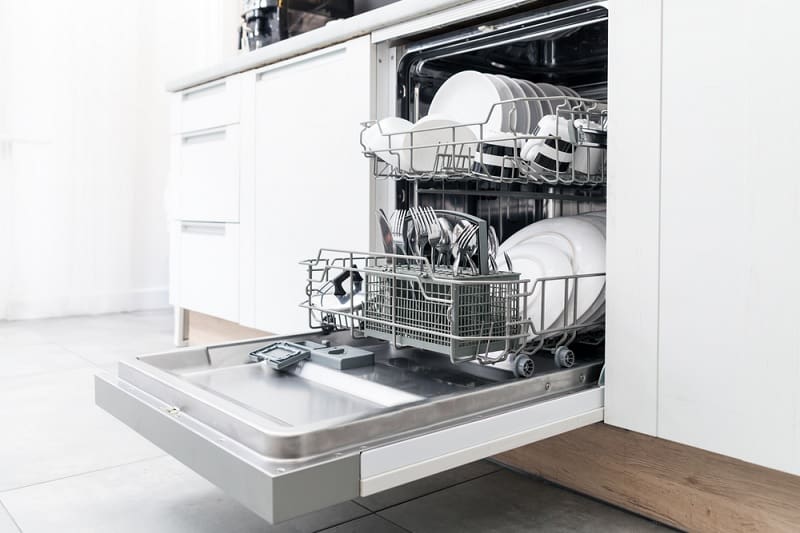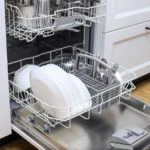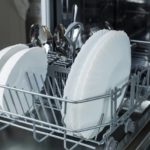Many people rely on appliances to help them with their daily chores. However, when it comes to dishwashers, lots of homeowners are concerned about whether or not they are hygienic.
As dishwashers are responsible for cleaning the items we use to prepare our food, any bacteria or germs that could pose a health risk must be adequately removed during the dishwasher cycle. You also don’t want to risk any cross-contamination between your dishes.
So, are dishwashers hygienic? Or is it best to stick with handwashing your dishes?
In this article, we answer this question in detail and give you some top tips for ensuring your dishwasher is as clean and safe to use as possible.
How Sanitary Is a Dishwasher?
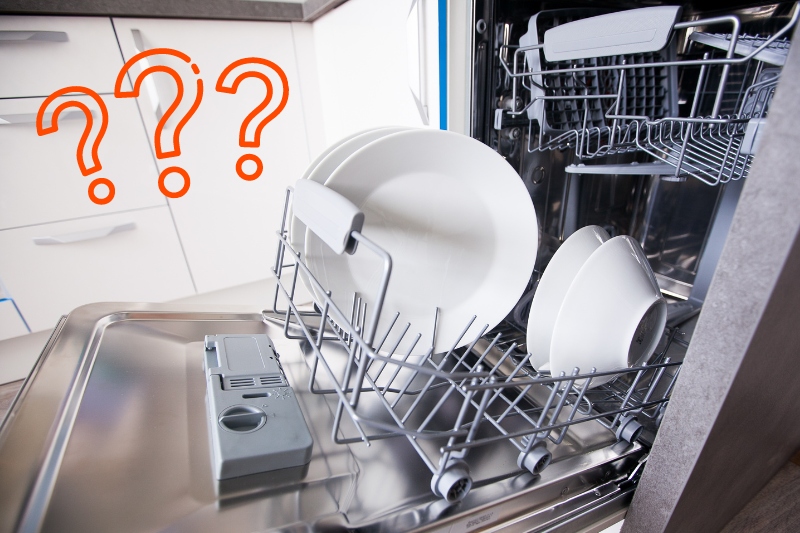
According to Columbia Daily Tribune, 100% of dishwashers have some bacteria in them, usually around the rubber sealing. However, these bacteria are typically not harmful to humans.
Moreover, as long as you regularly clean your dishwasher, the inside of the appliance will remain sanitary and hygienic.
Compared to the number of germs that live in the sponges used to handwash dishes, this is definitely a more hygienic option.
According to Science magazine, kitchen sponges “harbour zillions of microbes,” including pathogenic bacteria related to the microbes responsible for pneumonia and meningitis. So, dishwashers seem like the better, and more hygienic, alternative.
How Do Dishwashers Clean Dishes Properly?
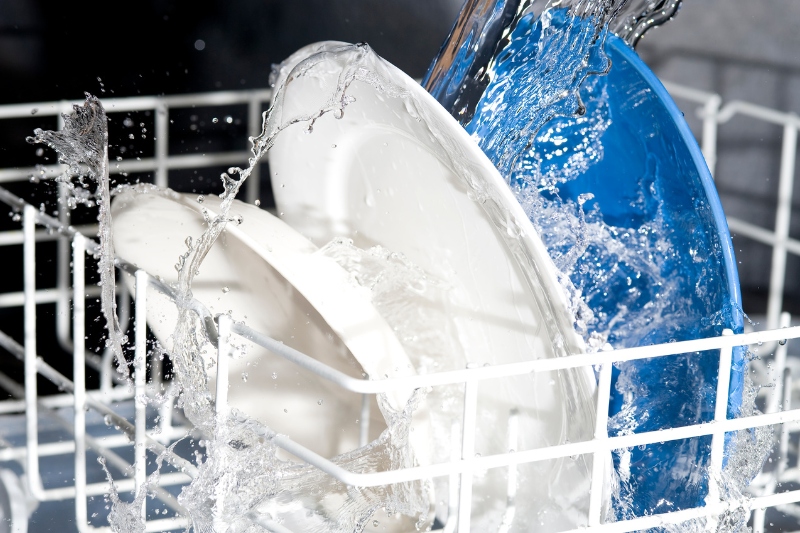
Dishwashers are amazing appliances that quickly make light work of your dirty dishes so that you don’t have to spend time washing them by hand. They do this using a combination of detergent and high-pressure water jets.
To kill bacteria, water should be at least 65°C. While this temperature is much too high for hand washing, your dishwasher can reach such temperatures or higher during the rinse phase to help kill germs.
Such high temperatures combined with an effective dishwasher detergent can also break down thick layers of grease, allowing them to be easily washed away. Overall, this leaves your dishes perfectly clean and sanitised, ready for future use.
Why Is My Dishwasher Making My Dishes Dirty?
Although dishwashers are a hygienic way of cleaning your dishes (and better than hand-washing due to higher temperature and less lurking bacteria), there are times when they will not clean your kitchenware effectively.
If you notice that your dishes come out dirty, it will usually be because of one of the following issues:
Dirty filter and spray arms
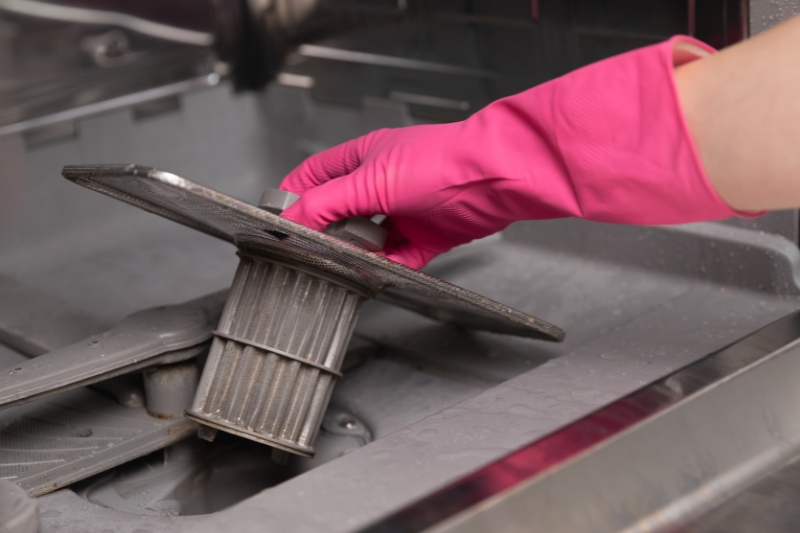
Over time, food particles will accumulate inside your dishwasher. These typically become trapped in the appliance’s filter and spray arms.
Unfortunately, this can lead to the growth of harmful bacteria and mould, which can then be transferred to your dishes.
Cleaning the inside of your dishwasher will remove any build-up of food or bacteria, making the appliance hygienic once more.
Improper loading
Loading your dishes into a dishwasher incorrectly can prevent your dishes from being thoroughly cleaned, as the spray arms will not be able to reach all the dirty surfaces.
Allowing dirty items to touch each other in the racks can also increase the chance of cross-contamination between the dishes.
Fortunately, all dishwashers will have a loading guide in their user manual that can instruct you on the proper way to place your dishes in the dishwasher racks. We highly recommend following these guidelines when loading your own dishwasher.
Low water temperature
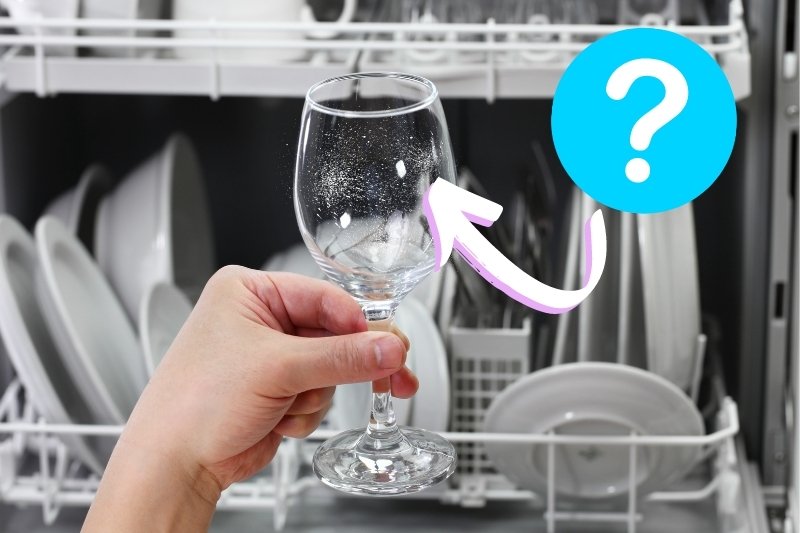
Using a low water temperature is more likely to leave your dishes with a chalky residue. This is from leftover dishwasher detergent that hasn’t dissolved properly.
As mentioned earlier, high water temperatures are also vital in the removal of grease from your dishes and an effective clean.
Ensuring you wash your dishes with hot water will guarantee that your detergent functions as it is meant to and that any food debris and dirt are removed from the surface of your dishes.
Top Tips for Keeping Your Dishwasher Clean
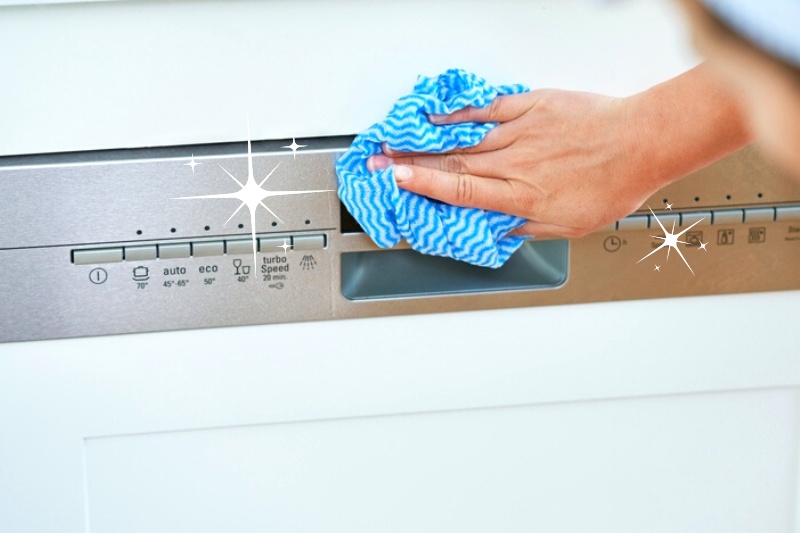
When dishwashers are correctly used, they are an incredibly hygienic way of dealing with your washing up.
However, improper maintenance of this appliance will allow food residue and bacteria to build up and transfer to your dishes.
To ensure your dishwasher remains sanitary, we highly recommend using our top tips:
- Load your dishes properly: Be sure to spread out your dirty dishes and follow the manufacturer’s instructions when loading them into the dishwasher. We also recommend scraping large pieces of food into the bin before loading. However, pre-rinsing is not required.
- Run a hot cycle regularly: Dishwashers come with a number of pre-programmed wash cycles. The water temperature used differs between these cycles, so if you are worried about killing bacteria, we suggest choosing one with a higher temperature. This cycle is often labelled “intensive” and will give you the best clean. Running one of these cycles regularly can help prevent the bacteria build-up that could form if you only ever wash your dishes at lower temperatures.
- Clean your dishwasher regularly: To prevent large amounts of food and bacteria from building up within your dishwasher, it is important that you clean it regularly. If you only lightly use the appliance, you will need to clean it up to four times a year. More frequent use requires more frequent cleaning.
- Use high-quality detergent: In general, using high-quality detergent will increase the effectiveness of your dishwasher’s cleaning. We have compiled a list of the best dishwasher tablets available in the UK if you would like some guidance.
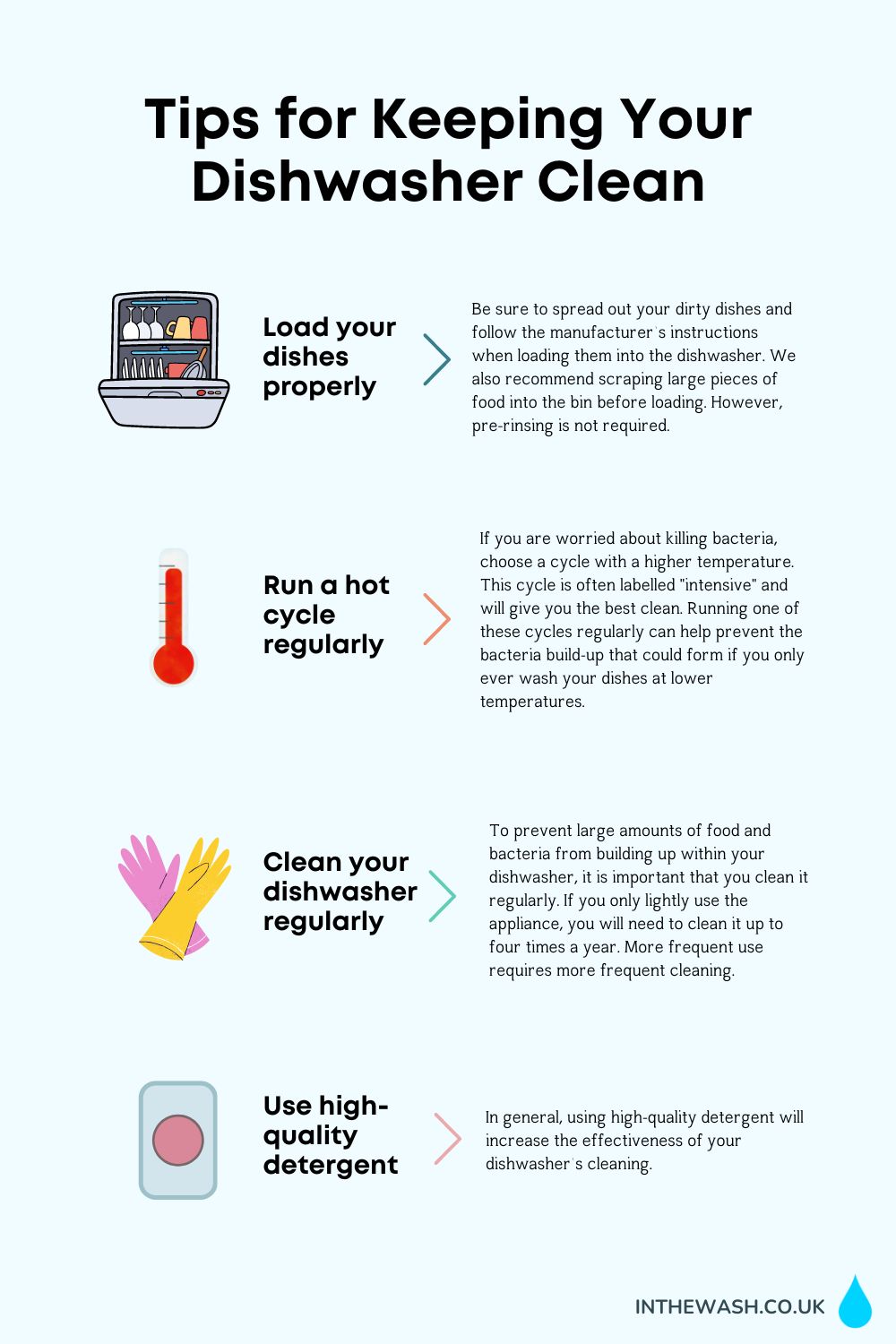

Hannah has a passion for cleaning. She worked her way around Australia by cleaning hostels in exchange for free accommodation and used her cleaning skills to bag a job as a chalet host for a luxury ski company in France.
